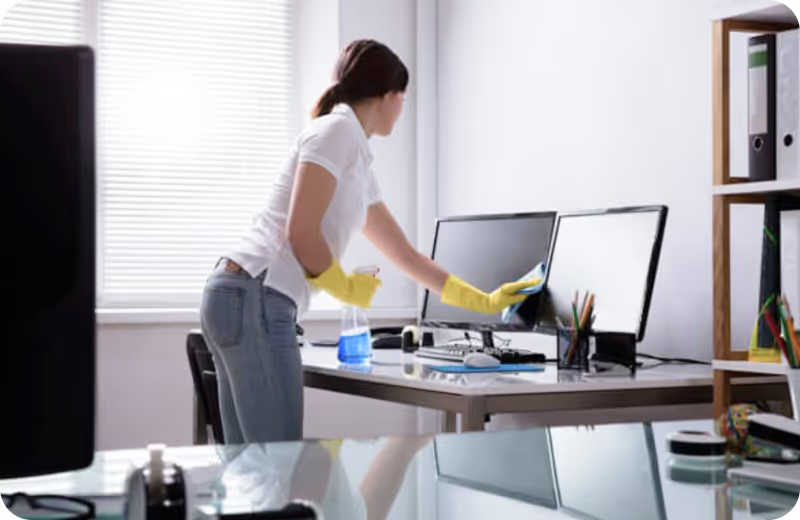
Everyone loves a fresh morning cup of coffee to start their day. The smell of coffee grounds brewing in a coffee pot can certainly invigorate even the most exhausted person, but we sometimes don't realize how quickly coffee makers get dirty, especially when used everyday.
Bleach is definitely one of the quintessential household cleaning agents for deep cleaning and disinfecting anything from floors and surfaces to even fabrics and linens due to its antibacterial properties, but one thing that we never think to use bleach for is to clean a coffee maker.
So in order to keep your morning coffee tasting great and fresh, here are some simple and easy ways that you can clean a coffee maker.
How to Clean a Coffee Maker with Bleach

Here's how you can properly sanitize and clean a coffee maker with bleach:
- Prepare the diluted bleach solution by mixing together one tablespoon of bleach to one gallon of water. The ration may seem extreme, but keep in mind that bleach is a very harsh chemical that needs to be heavily diluted. Make sure to stick to this ration and also do this in a properly ventilated area to disperse the fumes that may come from the bleach.
- After readying the diluted mixture, make sure that there is no coffee left in the dirty coffee maker and run a brewing cycle. Completely fill the coffee maker's reservoir with the bleach mixture. Leave the coffee maker to run a full brewing cycle so that the cleaning solution can go through the coffee machine's brewing mechanism properly.
- Keep repeating this process until all the mixture has been used. Feel free to use multiple brew cycles if necessary.
- After all the solution has been used up, rinse the coffee maker thoroughly with at least five gallons of fresh water. This may take a long time and multiple brew cycles, but you have to make sure that all the bleach residue has been washed away and that you're left with a clean coffee maker.
- Once you've made sure that all the harsh chemicals of the leftover solution have been rinsed away, set the machine in a well ventilated area to air dry. Make sure to leave your coffee maker upside down for a day or more to air dry.
Also read: How to Clean a Coffee Thermos
A Warning When Using Bleach to Clean a Coffee Maker

With using a bleach residue to clean a coffee maker, it's incredibly important that you don't compromise how much bleach is used as it has harsh chemicals that can not only leave a bad taste in your next brew, but can also pose severe health risks.
Adding more bleach than the indicated amount above can increase the chances of leaving some in your coffee machine. Apart from the damage it can cause to the inner workings of your coffee maker, it also increases your risks of ingesting bleach.
The Bottom Line
Cleaning your coffee maker with bleach may take a lot of time. One brew cycle is never going to be enough and a full cycle takes a while to complete itself. You'll also need to prepare at least a full gallon of diluted bleach solution and more than one gallon of water to rinse everything out before leaving the coffee maker to air dry.
It might all seem tedious, but it's definitely still worth it to clean your coffee maker every once in a while as it allows you to confidently brew a clean pot of coffee in the morning.
Send us a message and book your first cleaning appointment today!





























